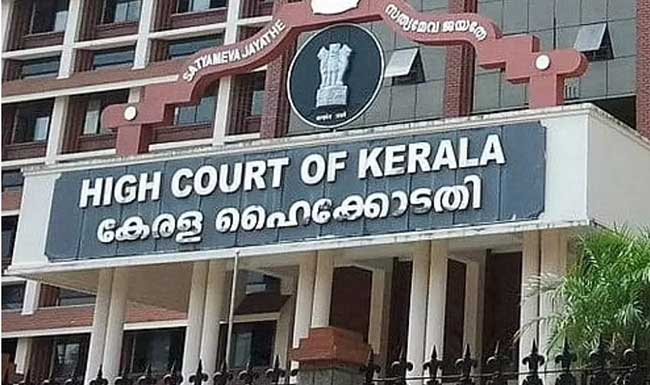Citing the holy Bible, the Kerala High Court came to the help of an 80-year-old citizen, whose request for arrears of maintenance from his children, was turned down by a family court.
The High Court was initially inclined to agree with the family court’s stance, since the 'Maintenance and Welfare of Parents and Senior Citizens Act, 2007' and Section 125 of the Criminal Procedure Code (CrPC) also only spoke of granting maintenance prospectively.
But the High Court reconsidered their initial opinion, after considering that law itself evolves from tradition, culture and the personal relations formed through the same.
“Is it a requirement that to claim maintenance there should be a positive law? We find the reasons recorded hereafter that, to claim past maintenance positive law is not a prerequisite … Law is nothing but principles that are
implicit in the relationships formed privately through practices, traditions and culture,” the Court pointed out.
In a country where social order is defined by the practice of the community or that of one’s denomination and adherence to long-standing religious norms, the Court opined that it “will have to recognize those norms and
precepts creating such relationships in that social order.”
Incidentally, the bench then decided to examine what the Bible, which governs the Christian faith of the senior citizen before the Court, says.
“The Holy Bible says: ‘Honor your father and mother’…”, the Court observed.
The bench further noted that Article 25 of the Universal Declaration of Human Rights (UDHR) declares that everyone has a right to an adequate standard of living, in the event of sickness, disability, old age, etc.
It pointed out that Article 41 of the Indian Constitution also says, “We cannot ignore the principles in a social order creating an obligation on the children to maintain their parents during old age”.
The Court went on to further point out that just because a law, like the 2007 Maintenance of Senior Citizens Act, entitled a senior citizen to claim maintenance prospectively, it did not mean that the law “negates” claims for past maintenance.
Then the court stated that the petitioner, being a man with self-respect, may have restrained himself from approaching the courts earlier in the hope that his children would respect his needs. His patience for his children cannot be cited to deny his claim for maintenance, the court added.
“Even without any positive aid of law the court could have recognised the right of the elderly irrespective of the religion to claim the past maintenance and future maintenance. Merely for the reason that the legislation had only provided measures for the award of prospective maintenance, that cannot result in denial of the claim for past maintenance...
the court ruled.
Hence, the High Court set aside the family court’s earlier decision to reject the senior citizen’s plea and asked the family court to consider the matter on merits.
All the parties have now been asked to appear before the family court on September 12 and the family court was directed to decide on the case within two months.


BSF apprehends 19 Bangladeshis, three Indians in Tripura
The Border Security Force (BSF) have arrested 19 Bangladesh nationals and three Indian nationals including a tout from different districts of Tripura, officials said on Wednesday.
J.P. Nadda to address mega rally on 2nd anniversary of BJP 2.0 govt in Tripura
Bharatiya Janata Party (BJP) President J.P. Nadda will address a massive public rally in Agartala on March 9 on the occasion of the second anniversary of the Manik Saha-led BJP 2.0 government in Tripura.
Mukhyamantri Samipeshu: CM Manik Saha extends assistance to people
In the 38th edition of the Mukhyamantri Samipeshu, citizens from various parts of the state met Chief Minister Prof. (Dr.) Manik Saha to seek assistance regarding their grievances and issues.
MP Kriti Devi Debbarman chairs DISHA meeting, reviews progress of various projects
The Khowai District Disha Committee meeting was held today at the conference hall of the District Magistrate's Office, presided over by MP Kriti Devi Debbarman. The meeting focused on reviewing the progress of various central and state government projects being implemented by different departments in the district.
CM visits TIPRA Motha President BK Hrangkhawl in Hospital
Chief Minister Prof. Dr. Manik Saha today visited TIPRA Motha Party President and veteran leader Bijoy Kumar Hrangkhawl, who is currently receiving treatment at a private hospital in Agartala following an illness.
Tripura Traffic Inspector held for Rs 74 Lakh embezzlement
Tripura Police on Wednesday arrested an Inspector of its traffic unit for allegedly embezzling Rs 74 lakh from the Bishalgarh Traffic Police Unit under Sepahijala District.
87 investors signed MoUs to invest Rs 3,700 crore in Tripura: CM Saha
Tripura Chief Minister Manik Saha on Tuesday said that 87 investors from different parts of the country signed Memorandums of Understanding (MoUs) promising to invest Rs 3,700 crore across different sectors, during the recent investors’ summit in Agartala.
Mizoram capital to come on Indian railway map within 5 months
Mizoram's Aizawl will be the fourth capital city in the northeast region to be joined by a railway link, and within five months, with the Bairabi-Sairang new line project at an advanced completion stage, officials said on Tuesday.